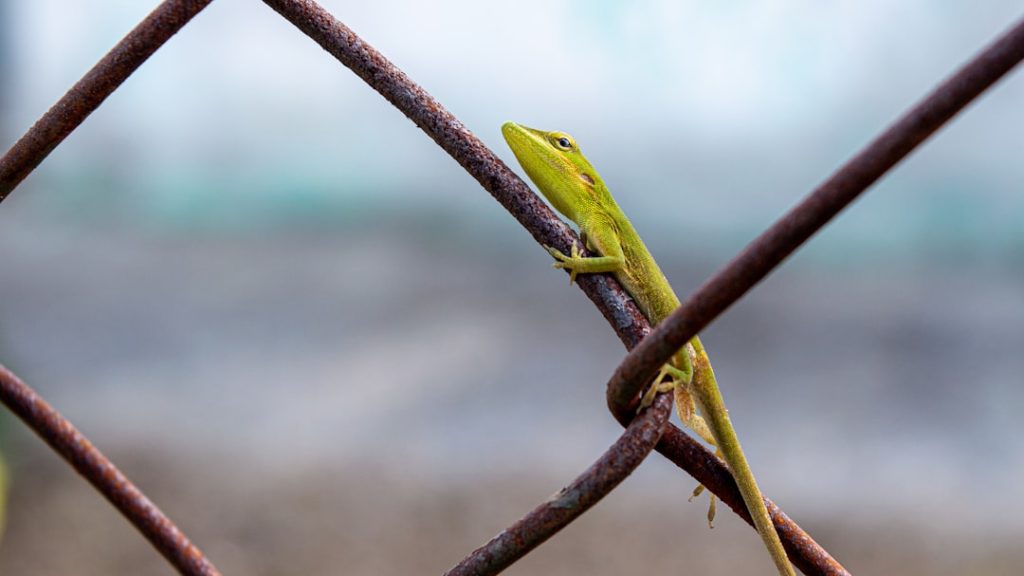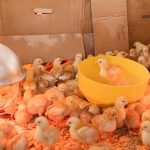Dogs and chickens possess distinct instincts shaped by their evolutionary history. Dogs, as natural predators, have a strong prey drive that compels them to chase and catch small animals. This instinct is deeply ingrained and can be challenging to overcome without proper training.
Chickens, being prey animals, have an innate fear of predators and tend to flee or hide when threatened. Understanding these instincts is essential for creating a safe environment for both species. Chickens exhibit a natural pecking order and can be territorial, particularly regarding their food and nesting areas.
They are easily startled by sudden movements or loud noises, which can trigger their flight response. Dogs, as pack animals, have a strong sense of hierarchy and may perceive chickens as potential rivals for attention and resources. Recognizing these natural behaviors and instincts in both dogs and chickens is crucial for effectively managing their interactions and preventing potential conflicts.
Table of Contents
- 1 Creating a Secure and Safe Enclosure for Chickens
- 2 Training Your Dog to Respect the Chickens
- 3 Using Deterrents to Keep Dogs Away from Chickens
- 4 Supervising Interactions Between Dogs and Chickens
- 5 Seeking Professional Help for Persistent Issues
- 6 Building a Positive Relationship Between Dogs and Chickens
- 7 FAQs
- 7.1 What are some effective ways to keep dogs away from chickens?
- 7.2 Why is it important to keep dogs away from chickens?
- 7.3 How can training help keep dogs away from chickens?
- 7.4 What are some common mistakes to avoid when trying to keep dogs away from chickens?
- 7.5 Are there any natural deterrents that can help keep dogs away from chickens?
Key Takeaways
- Dogs have natural instincts to chase and potentially harm chickens, while chickens have instincts to flee from predators.
- A secure and safe enclosure for chickens is essential to protect them from potential harm by dogs and other predators.
- Training your dog to respect the chickens and understand that they are part of the family is crucial for their coexistence.
- Using deterrents such as fencing, motion-activated sprinklers, or bitter-tasting sprays can help keep dogs away from chickens.
- Supervising interactions between dogs and chickens is important to ensure the safety of the chickens and to correct any unwanted behavior from the dog.
Creating a Secure and Safe Enclosure for Chickens
Secure Enclosure: The Key to Safety
One of the most important steps in keeping dogs and chickens safe is to create a secure and safe enclosure for the chickens. This can help to prevent any unwanted interactions between the two animals and provide a safe space for the chickens to roam and forage without fear of being chased or attacked by the dog. The enclosure should be sturdy and well-constructed, with a secure fence that is tall enough to prevent the dog from jumping over or digging under.
Protecting from Aerial Predators
It should also have a roof or cover to protect the chickens from aerial predators such as hawks or owls. In addition to a secure fence, the enclosure should also have a sheltered area where the chickens can roost and lay eggs, as well as access to food and water.
Reducing Stress and Aggression
Providing plenty of space for the chickens to move around and engage in natural behaviors such as scratching and dust bathing can help to reduce stress and aggression within the flock.
Minimizing Conflicts and Ensuring Well-being
By creating a safe and secure environment for the chickens, you can help to minimize the risk of any potential conflicts with the dog and ensure the well-being of both animals.
Training Your Dog to Respect the Chickens

Training your dog to respect the chickens is essential for creating a harmonious relationship between the two animals. This can be achieved through positive reinforcement training, which involves rewarding your dog for desirable behaviors such as ignoring the chickens or staying calm in their presence. You can use treats, praise, and toys to reinforce these behaviors and help your dog associate the presence of the chickens with positive experiences.
It is important to start training your dog from a young age, as this can help to shape their behavior and prevent any potential issues from arising in the future. You can begin by teaching your dog basic obedience commands such as “sit,” “stay,” and “leave it,” which can be useful for managing their interactions with the chickens. Gradually introduce your dog to the chickens in a controlled environment, such as on a leash or behind a barrier, and monitor their behavior closely.
If your dog shows any signs of aggression or prey drive towards the chickens, redirect their attention and reward them for calm and non-threatening behavior.
Using Deterrents to Keep Dogs Away from Chickens
In addition to training, using deterrents can be an effective way to keep dogs away from chickens and prevent any potential conflicts. There are various deterrents available that can help to discourage dogs from approaching or harassing the chickens, such as motion-activated sprinklers, ultrasonic devices, or natural repellents like citrus or vinegar. These deterrents can help to create a negative association for the dog with the chickens’ enclosure, making it less likely that they will attempt to enter or disturb the chickens.
Another effective deterrent is the use of visual barriers, such as fencing or netting, which can help to block the dog’s line of sight and prevent them from seeing or accessing the chickens. This can be particularly useful if your dog has a strong prey drive or is easily triggered by the sight of small animals. By using a combination of training and deterrents, you can help to create a safe and secure environment for your chickens and minimize the risk of any potential conflicts with your dog.
Supervising Interactions Between Dogs and Chickens
Even with training and deterrents in place, it is important to always supervise interactions between dogs and chickens to ensure their safety. This is especially crucial during the initial stages of introducing your dog to the chickens, as well as during any subsequent interactions. By closely monitoring their behavior, you can intervene quickly if any signs of aggression or predatory behavior arise, and prevent any potential harm to the chickens.
Supervision also allows you to observe how your dog is responding to the presence of the chickens and make adjustments to their training or management as needed. It is important to be proactive in addressing any issues that may arise, rather than waiting for a potential conflict to occur. By being present and attentive during interactions between your dog and chickens, you can help to foster a positive relationship between the two animals and ensure their well-being.
Seeking Professional Help for Persistent Issues

Expert Guidance for a Harmonious Coexistence
A professional can assess the situation and provide personalized guidance and support to help you manage your dog’s behavior and improve their relationship with the chickens. They can offer valuable insights into understanding your dog’s instincts and motivations, as well as develop a tailored training plan to address any specific challenges.
Addressing Aggression and Prey Drive
If your dog has a strong prey drive or has shown signs of aggression towards the chickens, professional help can be particularly beneficial. A professional can provide expert guidance on how to modify your dog’s behavior and manage their interactions with the chickens in a safe and effective manner.
Creating a Positive Relationship
By seeking professional help, you can gain valuable knowledge and skills that can help you create a positive and harmonious relationship between your dog and chickens. With the right guidance and support, you can overcome behavioral challenges and enjoy a peaceful coexistence between your pets.
Building a Positive Relationship Between Dogs and Chickens
Ultimately, building a positive relationship between dogs and chickens requires patience, consistency, and understanding of both animals’ instincts and behaviors. By providing a secure enclosure for the chickens, training your dog to respect them, using deterrents when necessary, supervising their interactions, and seeking professional help if needed, you can create a safe and harmonious environment for both animals to coexist. It is important to remember that every dog is unique, and some may require more time and effort to adjust to living alongside chickens.
However, with dedication and commitment, it is possible to foster a positive relationship between dogs and chickens that allows them to peacefully share their living space. By taking proactive steps to manage their interactions and create a safe environment, you can ensure the well-being of both animals while enjoying the unique companionship they each provide.
If you’re looking for tips on how to keep dogs away from chickens, you may also be interested in learning how to convert a shed into a chicken coop. This article from Poultry Wizard provides valuable information on the process of converting a shed into a safe and secure space for your chickens. Check it out here.
FAQs
What are some effective ways to keep dogs away from chickens?
Some effective ways to keep dogs away from chickens include using physical barriers such as fences or chicken wire, training the dogs to respect the chickens’ space, and using deterrents such as motion-activated sprinklers or noise devices.
Why is it important to keep dogs away from chickens?
It is important to keep dogs away from chickens to prevent injury or death to the chickens. Dogs are natural predators and may harm or kill chickens if not properly managed.
How can training help keep dogs away from chickens?
Training can help keep dogs away from chickens by teaching them to respect the chickens’ space and not view them as prey. Positive reinforcement training methods can be used to redirect the dogs’ behavior and create a positive association with the chickens.
What are some common mistakes to avoid when trying to keep dogs away from chickens?
Some common mistakes to avoid when trying to keep dogs away from chickens include using punishment-based training methods, leaving the dogs unsupervised around the chickens, and not providing enough physical barriers or deterrents to prevent access to the chickens.
Are there any natural deterrents that can help keep dogs away from chickens?
Some natural deterrents that can help keep dogs away from chickens include citrus peels, vinegar, or cayenne pepper sprinkled around the chickens’ area. These scents are unpleasant to dogs and may discourage them from approaching the chickens.
Meet Walter, the feathered-friend fanatic of Florida! Nestled in the sunshine state, Walter struts through life with his feathered companions, clucking his way to happiness. With a coop that’s fancier than a five-star hotel, he’s the Don Juan of the chicken world. When he’s not teaching his hens to do the cha-cha, you’ll find him in a heated debate with his prized rooster, Sir Clucks-a-Lot. Walter’s poultry passion is no yolk; he’s the sunny-side-up guy you never knew you needed in your flock of friends!







